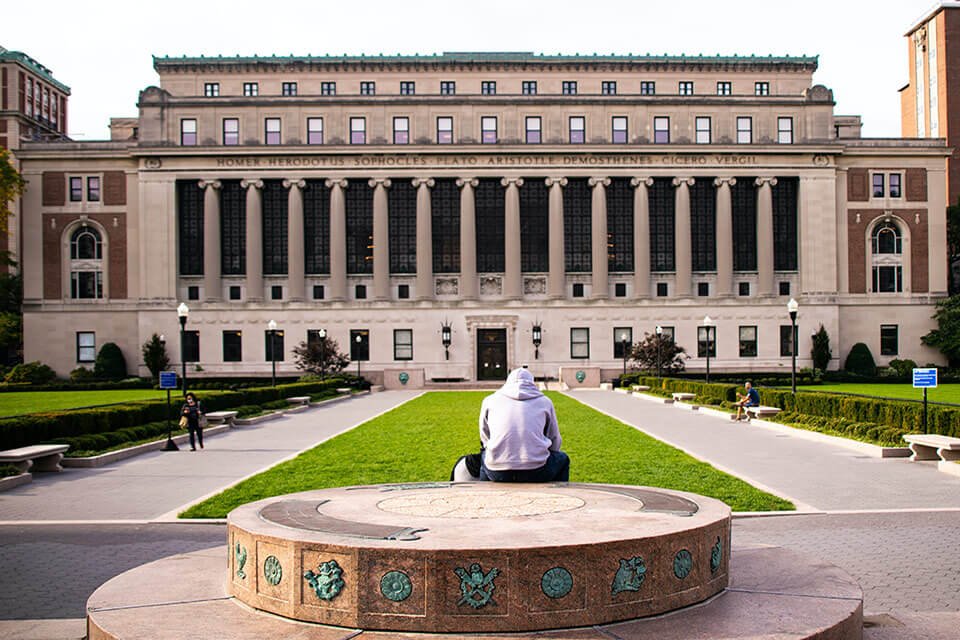An MBA is akin to a roller coaster ride, thrilling, exhausting, but deeply enriching. After nine years, I can still say that my experience at Columbia Business School (CBS) was unparalleled, with immense learning opportunities both inside and out of the classroom.
Following 10 years in audit and consulting, I wanted to switch my career trajectory to corporate strategy and business development. With a curriculum focused on entrepreneurship, innovation and business strategy and New York City (NYC) as the backdrop, I knew CBS was the place for me.
Here Are My Top 7 Highlights From Columbia Business School (CBS):
1) Global Outlook:
My peers came from diverse backgrounds, cultures and experiences, which fostered an in-class environment that mirrored New York City’s diversity. CBS ensured that no two students of the same nationality had similar profiles and goals, creating a truly global alumni network. Additionally, the curriculum emphasised international learning experiences. One such course, a global immersion elective, enabled students to spend a week in a country (Turkey, in my case) and meet local business executives to gain first-hand business insights. Other countries covered in this elective included Germany, Brazil and Hong Kong – fast-growing cities focusing on new business.
2) The Customisable Academic Experience:
With over 300+ electives, CBS offers the largest selection of courses among business schools. This encourages students to opt for courses from other graduate programmes within Columbia University and curate pathways that are in sync with their post-MBA career goals.
Since my post-MBA path involved entrepreneurship and leadership, I chose electives that supported my learning:
- Napoleon’s Glance: An innovation course led by Professor William Duggan, ‘Napoleon’s Glance’ focused on using strategic intuition in business innovation. I learned the importance of applying scientific research to develop insight and using one’s gut. The notion that “creativity doesn’t come from thin air; it comes from the brain” has remained with me after all these years. Reviewing case studies, such as the Starbucks story, really brought these concepts to life.
- Personal Leadership and Success: One of my favourite courses, ‘Personal Leadership and Success’ (I was actually a tutor for the course), taught by Hitendra Wadhwa, aimed at improving self-awareness and emotions as a leader to create a thriving internal environment. Using essays and articles written by and about Mahatma Gandhi, Nelson Mandela, Abraham Lincoln and other leaders who made historically notable decisions, we explored the significance of self-awareness and the art of mastering your internal environment to create outward impact. A standout memory I have of this course is the experiential learning exercises, where we shared personal tidbits in a supportive environment that fostered lifelong bonds of trust.
- Introduction to Venturing: Taught by serial entrepreneur Jack Kaplan, ‘Introduction to Venturing’ guided us on setting up a company from scratch. From writing business plans and presenting them to gaining insights from peers, I can confidently say that this course helped me tremendously when I started my career coaching company.
- Independent Study: During my independent study with Sheena Iyengar, we used real-life examples to understand the Big 5 personality assessment model. These lessons were invaluable when I began working with clients and guiding their career plans.
3) The New York City (NYC) Advantage:
A 10-minute subway ride from midtown, CBS is integral to NYC’s professional landscape. Due to its proximity to the world’s financial capital and corporate representatives, many alumni frequently visited the campus. These visits often resulted in a wealth of career advice and connections. Many of my peers benefited tremendously from these interactions. At the time, I was already working in NYC – being able to stay in a city I loved while attending my dream school was extremely rewarding.
4) A Focus on Entrepreneurship:
Entrepreneurship lies at the heart of CBS. With courses such as the ‘Foundation of Entrepreneurship’ and Lean Launchpad, the school offers students a platform to learn about the start-up world while simultaneously developing skills through hands-on experiences and navigating real-world problems. Whatever the field, CBS helps you understand its intricacies and gives you the tools required to sustain an entrepreneurial venture. As an alumnus, you gain access to the Columbia Startup Lab, a co-working space initiated by Dean Hubbard. Many of my classmates who took advantage of this offering were frequently seen huddled in corners around the lab – part of a vibrant community that brainstormed ideas and cheered each other’s successes.
5) Exceptional Career Support:
Equipped with a robust database of industry experts, the Career Management Center (CMC) at CBS enables networking opportunities that often yield ~100% responsiveness. From one-on-one sessions to specific interviews and resume-building workshops, the CMC aided my career transition. By providing intensive coaching on finding the right industry and job that matched my profile, they encouraged me to become a certified career coach and helped me build a strong foundation that supported my ambitions during this eight-month-long journey.
6) Beyond the Classroom:
The MBA experience isn’t limited to classes. With more than 100 student-led clubs, the CBS community has something for everyone. Apart from hosting sessions with industry stalwarts, such as breakfast with Michael Burke, the CEO of Louis Vuitton and one-on-one interactions with Barbara Corcoran (from Shark Tank), these clubs also publish insights on specific roles and industries (from private equity and consulting to retail and tech). From learning how to crack consulting case interviews to connecting with alumni, they offer you a wealth of resources to attain your post-MBA goals. My advice? Attend events across different clubs before zeroing in on the few you want to join.
7) Stellar Faculty:
CBS has over 150 tenured and 100+ adjunct faculty who bring their world-renowned teachings and experiences to the class. My focus areas were leadership development, understanding the people side of the business (organisational psychology) and entrepreneurship. In these courses, I learned some valuable lessons from:
- Sheena Iyengar – Core Course: Organisational and Leadership Development – The Art of Negotiations and Choice Research
- William Duggan – Course: Napoleon’s Glance
- Hitendra Wadhwa – Course: Personal Leadership & Success
- Michael Morris – Course: Managerial Negotiations – Why it’s so important to understand cultural differences when it comes to negotiating
- Jack Kaplan – Course: Introduction to Venturing
Ultimately, Columbia Business School became my second home with a collaborative environment filled with learnings I use daily in my personal and professional life!
At The Red Pen, we have several resources that can help you make your business school shortlist, a guide on how to apply and even a final checklist to go over before you submit your application. You can also gain interview insights, such as how to answer the “Can you tell me about yourself?” question and some general interview tips to help you prepare. If you require any further assistance in putting together your application, get in touch with us.





